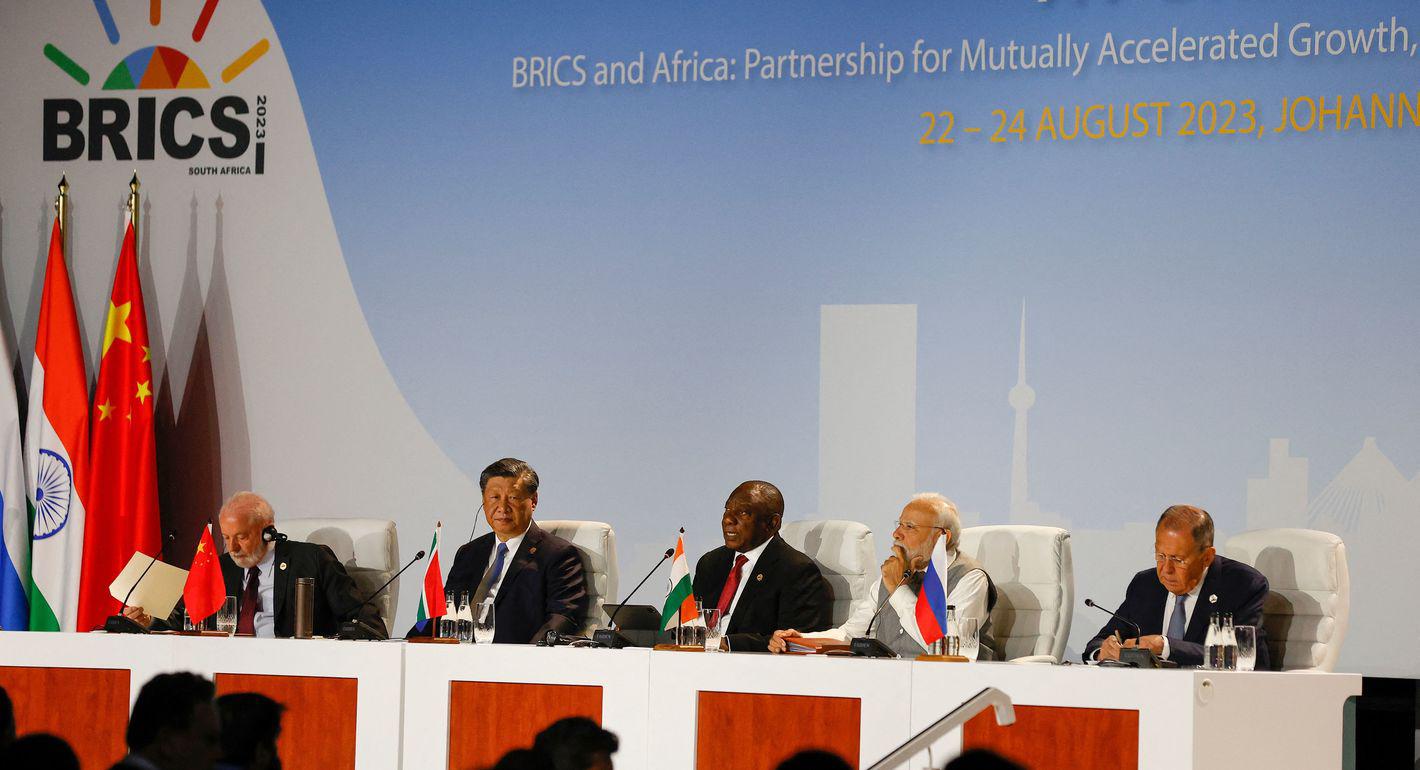The addition of Saudi Arabia, Egypt, the United Arab Emirates, Iran, and Ethiopia to the BRICS economic bloc—established by Brazil, Russia, India, China, and South Africa—has contributed to a growing trend of regional and international polarization. It has also raised questions about the future of U.S. international influence, especially in the Middle East and North Africa.
Initially formed as a quadrilateral organization in 2006, the bloc convened its inaugural summit in 2009 in the Russian city of Yekaterinburg, prior to South Africa's inclusion in 2010. According to assessments by the International Monetary Fund (IMF) and the World Trade Organization, following the 2024 expansion, BRICS nations account for 28.7 percent of global GDP and nearly 20 percent of international trade, with combined financial resources exceeding $25 trillion. The bloc represents over 44.5 percent of the world's population—3.5 billion people—and covers more than 24.5 percent of the Earth's landmass, granting them an exceptionally vast geopolitical reach.
It is plausible that the bloc, with its current and numerous prospective members, will eventually compete with the Group of Seven (G7) major industrialized nations and contribute to the process of de-dollarization in international markets. This economic transition will be accompanied by parallel political, strategic, and security-related shifts driven by the current policies of Russia and China, the leading powers of BRICS since its inception. Among the most notable of these policies is the move to replace the dollar with the local currencies of member states in all economic and trade exchanges, alongside plans to issue a unified currency and create alternative financial institutions to the IMF and the World Bank.
BRICS may also leverage its oil powers, represented by Russia, Saudi Arabia, the UAE, and Iran, to advance the bloc’s political and strategic objectives. This includes shaping the regulations governing international energy markets to mitigate the impact of Western sanctions, and exerting influence over decisions at the UN and other international fora. Ultimately, these moves could marginalize or even undermine American and European objectives in regional and global affairs.
Yet at the same time, there are multiple structural challenges that could prevent BRICS from eliminating U.S. international influence over economic, strategic, and security-related matters in the coming years or even decades. Foremost among these are the internal conflicts, particularly among the bloc’s new members, over interests and ideology. For instance, Egypt and Ethiopia stand on opposite sides of multiple issues, as do Iran and Saudi Arabia and the UAE, with ongoing disputes over regional affairs and Iran’s nuclear capabilities. There are also conflicts between India and China over water and food, tensions along their 3400-kilometer border, and ideological contradictions between their respective political systems.
Against this backdrop, the U.S. dollar remains dominant in global trade transactions and is widely used to facilitate currency exchanges within emerging markets. Even among the BRICS members themselves, the dollar is still used to price major commodities and settle associated trade deals. Meanwhile, the local currencies of BRICS members suffer from inadequate financial infrastructure and the increased cost of cross-border trade transactions, which weakens their market value while strengthening dollar.
The bottom line is that despite recent expansions, the BRICS bloc has yet to have a significant economic impact on the United States. However, the inconsistent U.S. position towards ongoing regional and international crises, notably in Ukraine and Gaza, in contrast with the assertive presence of China and Russia, may pave the way for BRICS to achieve its objectives. Indeed, recent events have underscored the self-serving nature of American policies in international and humanitarian affairs. Washington doesn’t hesitate to use financial systems for geopolitical gain, as was evidenced by the selective punitive measures the United States took against Russia, sidelining Russian banks from SWIFT financial communications and freezing half of their gold and foreign exchange reserves. The United States also risks losing its influence among emerging economic powers as a result of repeated dollar crises and the detrimental practices and programs of the International Monetary Fund (IMF), which stifle debtor economies while bolstering the dominance of U.S. creditor institutions. This is why the success of hybrid blocs like BRICS is ultimately an economic necessity.
Mohsen Hassan is an Egyptian academic researcher and journalist whose work focuses on regional and international public policies, conflict and development issues, and political Islam groups in the Middle East and Africa. Follow him on X @twittmohsen2011.



.jpg)


